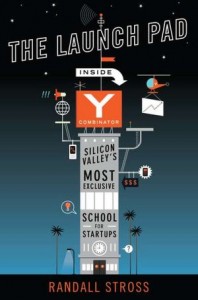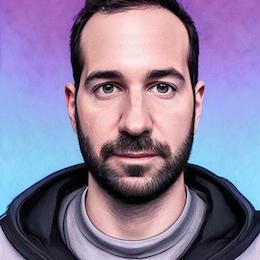
The Launch Pad is a book on YCombinator, a seed fund that is mass-producing new startups in Silicon Valley. The book walks us through different stages of the program: applications, interviews, prototype day, rehearsal day and demo day. It gives an insider perspective, featuring what several companies such as MongoHQ, Parse and Rap Genius have gone through during YC Summer 2011 batch. It contains the struggles of companies who had to pivot and come up with new ideas during the program. It’s also a good resource for learning about Paul Graham school of thought on startups. Here are some of the parts I liked:
Starting a company
- Try and pick things where the cost of failure is low and the cost for you is basically time.
- A company should make something customers really want
- Here’s how to generate new ideas. Three things. One: founders are target users. Two: not many people could build it, but founders are among them. Three: few people realize it is a big deal."
- “The thirty-two-year-old probably is a better programmer but probably also has a much more expensive life,” Graham wrote. The twenty-five-year-old had the most advantages, which included “stamina, poverty, rootlessness, colleagues, and ignorance”.
- (Paul Graham) On two occasions, he had come close to starting another startup but “both times I bailed because I realized that without the spur of poverty, I just wasn’t willing to endure the stress of a startup”
Product
- Launch Fast is Paul Graham’s mantra.
- Just focus on one of three things: One, be cheaper. Two, focus on a niche. Or, three, be 10x better than the other products out there".
- Initially, the number of users is less important than the intensity of their attachment.
- He impresses upon them that they should know their growth rate and then obsess about meeting the target they set. “Treat it like a game. It will cause you to do the right thing. It will focus everything. It will be like a compass”
YCombinator
- Getting into YC is unlikely - a 3 percent chance.
- It’s kind of sink or swim… The most successful startups, Graham says, are the ones that completely remove distractions: “They just sleep, eat, exercise, and program”
- Graham believes having the founders gather once a week, in person, prods them to work harder because of the power of shame avoidance: they would not want to embarrass themselves by having little progress to report to their peers at the weekly get-together.
- They don’t fuck around, right? The startups that succeed, they don’t go to meet-ups, they don’t run around talking to boards of advisers, they just write code and talk to customers, right?". Write code and talk to customers
- In the YC universe, business schools are deemed so useless that no one bothers to expend any energy in remarking upon their irrelevance to software startups.
- When Y Combinator began, Paul Graham set down a formal rule: no funding of startups with only one founder.
- Shah has noticed that Paul Graham is best for the big, strategic questions, but Sam Altman is a better perso to go for questions about operational details.
Investors
- The number one company is worth more than the next 199 companies combined. while number two is worth more than the next 198 combined, and so on
- One of the big things they focus on is ‘proxy for demand’. Which basically means when looking at some new idea, they want to see what people are doing at the moment.
- “For seed stage investors, a convertible note is attractive because of its simplicity. There is no wrangling over the valuation of the company.”
- He’s not going to say, ‘bull-shit!’ which is what most people would say. He’s going to say, ‘How soon?’ which is investor talk for ‘bullshit’.
- (David Lee) The biggest question for us, we look at a founder - I’m a forty-two-year-old guy - and I will say, “Would I work for this guy?”
- “We’re going to distrupt this market” is the prose equivalent of stock photographs.
Mindset
- You’re looking for someone who is like an animal, one of these people that is not going to take no for an answer. Super aggressive. Really scrappy. This is one of those things that’s hard to define, but when you meet a good salesperson. you would buy something from them.
- “People go out and do stuff on Fridays nights and I just work. This is it. I feel extremely – I don’t know – ‘hungry’.
- (Paul Bucheit) In his own professional life, he has followed whatever path seemed most likely to lead to interesting work.
Silicon Valley
- The environment determines the socially accepted norm. “If all your friends are going to go work at finance companies, they you’re going to work at a finance company”
- When he first moved to Silicon Valley in 1998, “everyone was so cheerful and healthy and rich. It seemed a new and improved world.”
I really enjoyed getting a detailed account of YCombinator program in this book. It also contains excerpts from Paul Graham essays and advice about starting a company. If you’re interested in startups or plan on applying to YCombinator, this book is for you.
